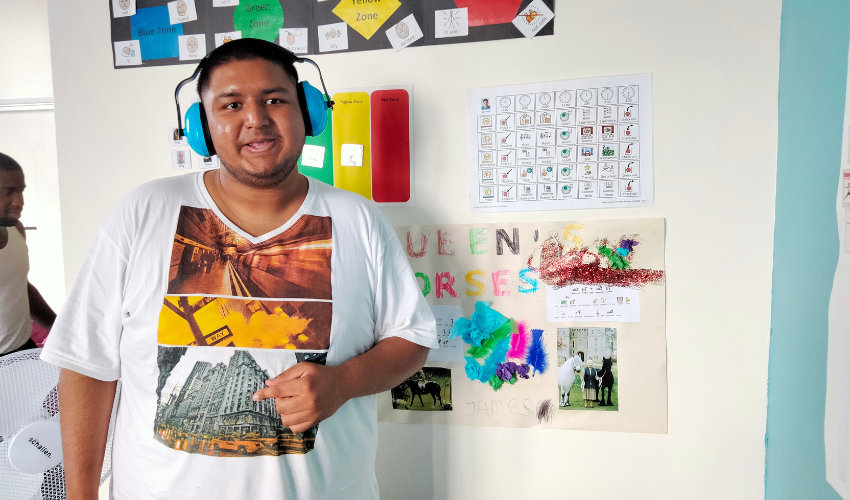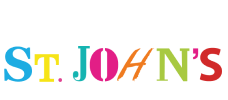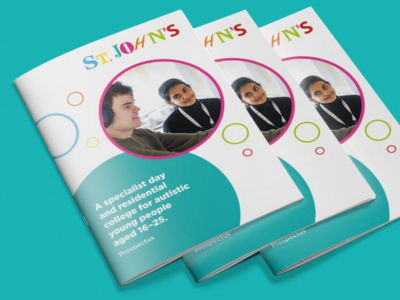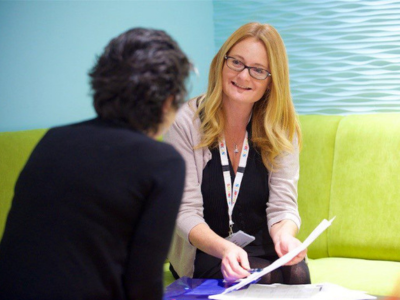
Attainment of core skills promotes opportunities for further education and learning. Communication and interactions, digital skills, and problem-solving are embedded throughout the curriculum.
Functional Maths and English are taught as discrete sessions and lead to accredited qualifications. They are also embedded across the learning subjects and in different contexts.
Functional English
With a focus on the fundamentals of reading, writing, speaking, and listening, learners can develop core literacy skills that are relevant and essential in everyday life, helping our learners to lead positive and purposeful lives.
The aim is to develop confidence and ability, enabling learners to develop and apply their knowledge and skills to new situations in their life and work. The assessments focus on functionality and the application of skills as articulated by the Functional Skills criteria in English. Tasks are made practical and may involve following instructions, making tasks, or information-seeking tasks that learners would experience in real-life situations. Communication and interaction, digital skills, and problem-solving are all supported through the delivery of literacy and English.
Reading
A range of age-respectful texts, reading programmes, and resources are used to appeal to learners’ different interests and abilities and to encourage their enjoyment of reading. St John’s College will make use of every opportunity the curriculum offers to teach and encourage learners to read. Our college library provides a comfortable, quiet reading space for learners and holds literacy events and competitions throughout the year.
Functional maths
The mathematics curriculum enables learners to become confident in their use of fundamental mathematical knowledge and skills. Learners can demonstrate their understanding by applying their learning to practical situations beyond the classroom.
There are three main areas of study at all levels, from Entry 1 to Level 2, which are number, shape and space, and handling data.
Levels 1 and 2 mathematical skills are more involved and require the learner to apply their skills through appropriate reasoning and decision-making and to solve problems of increasing complexity. Again, these are applied to the world of work and everyday life skills
Digital skills
Digital skills enable learners to use a variety of technology for everyday tasks, such as Microsoft Office and a range of functional apps and software. Learners can also use technology as a communication tool and leisure resource. There is an emphasis on how to stay safe online and the appropriate use of technology.
Learners have the opportunity to gain digital skill qualifications that can help to gain employment.


